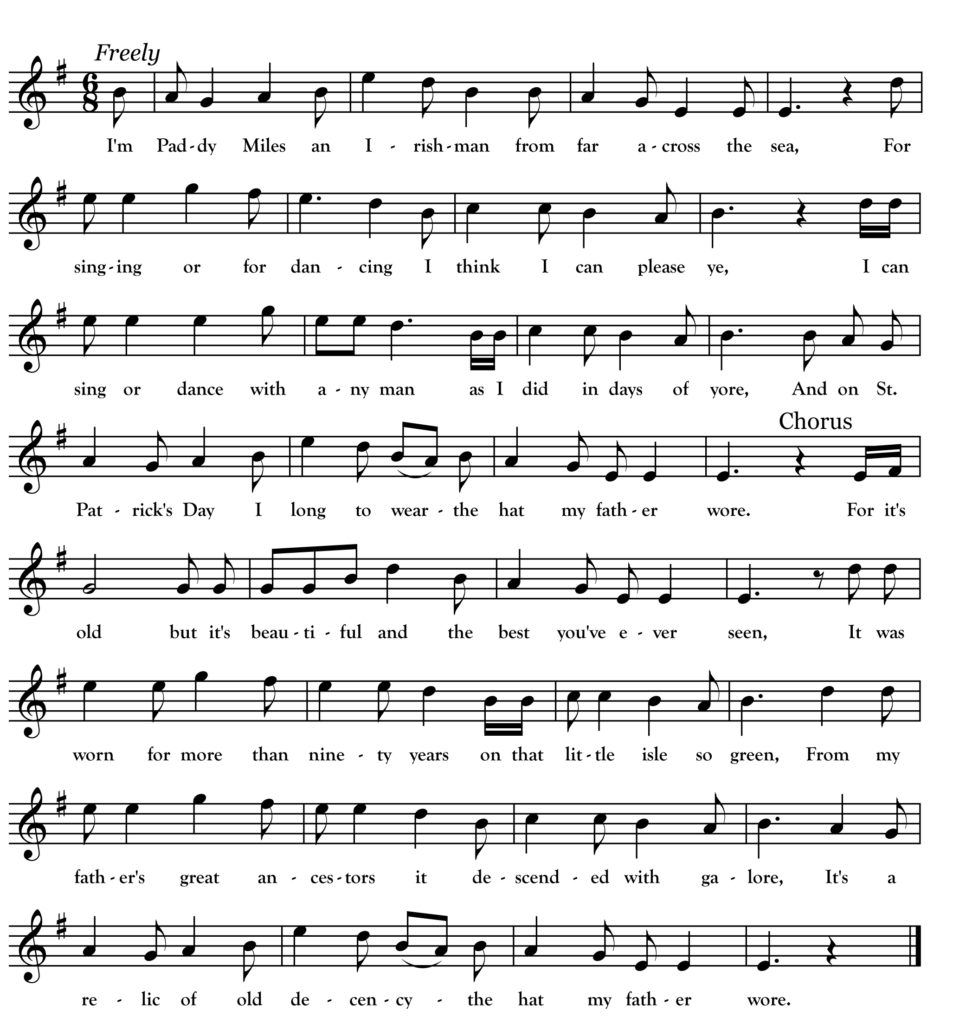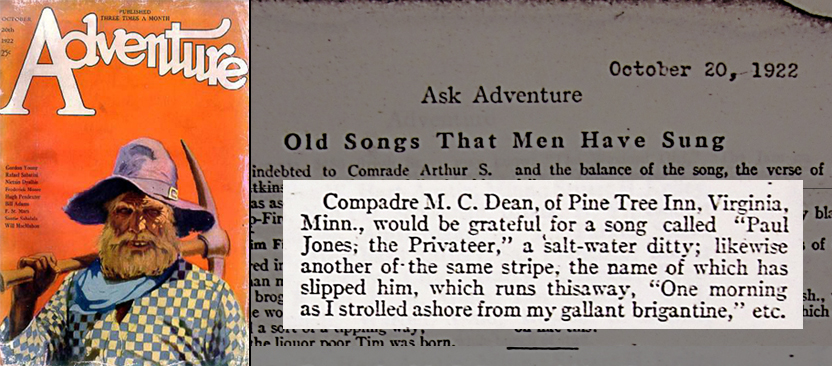The Hat My Father Wore

I’m Paddy Miles an Irish boy, from far across the sea,
For singing or for dancing, oh, I’m sure I can please ye;
I can sing or dance with any man as I did in days of yore,
And on St. Patrick’s Day I long to wear the hat my father wore.
Oh, it’s old but it’s beautiful and the best you’ve ever seen,
It was worn for more than ninety years on that little isle so green;
From my father’s great ancestors it descended with galore,
It’s the relic of old decency, the hat my father wore.
I bid you all good evening, good luck to you I say,
And when I’m on the ocean, I hope for me you’ll pray;
I am going to my happy home in a place called Ballymoor,
To be welcomed back to Paddy’s land with the hat my father wore.
And when I do return again the boys and girls to see,
I hope that with old Erin’s style you’ll kindly welcome me;
And sing me songs of Ireland to cheer me more and more,
And make my Irish heart feel glad with the hat my father wore.
The sheet music for “The Hat My Father Wore” was printed in New York City in 1876. The cover of that publication lists it as one of the “Popular Songs SUNG BY JOHNNY ROACH THE GREAT FACIAL ARTISTE” with words written by Daniel Macarthy. Vaudevillian Johnny Roach also had a hand in popularizing the song “Dick Darby the Cobbler” (sung by Tommy Makem and countless others) as that song was part of a larger routine he did called, simply, “The Cobbler.” Roach also sang “When McGuiness Gets a Job” which, along with both other songs, went into tradition in the north woods. It is also worth noting that “The Hat My Father Wore” and the Orangeman’s song “The Sash My Father Wore” are directly related in text and tune but it is unclear which came first.
“The Hat” was in the repertoire of Minnesota singer Michael Dean and many other north woods singers I have researched throughout the Great Lakes and Maritimes. The above melodic transcription comes from the beautiful singing of Maine/Nova Scotia singer Carrie Grover (thanks to two digitized recordings available on the Carrie Grover Project site). Grover’s melody is full of delicious deviations from the much simpler melody printed in the 1876 sheet music. The text above is my own blend of Dean’s and Grover’s.



